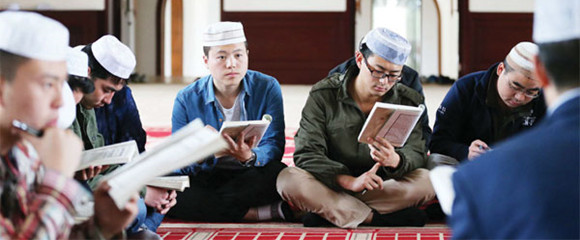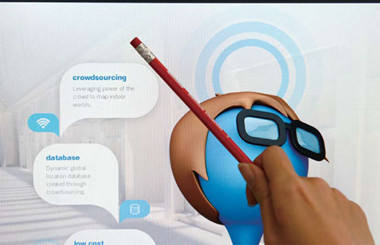China's healthcare needs spotlighted in Houston
Updated: 2016-05-20 11:43
By MAY ZHOU in Houston(chinadaily.com.cn)
|
|||||||||
China's demand for medical services is being met by some American healthcare companies, who are opening operations overseas.
Of more than 100 projects presented to Chinese investors, more than 50 percent were healthcare related, according to Lu Jun, executive director of the US China Innovation Alliance, one of the major organizers of the US China Innovation and Investment Summit, which took place in Houston on Monday and Tuesday.
Lu also serves as the vice-president and partner at Vesalius Ventures, a firm connecting Chinese and US healthcare companies.
"In recent years, we see dramatically more Chinese coming to the US for medical treatment. In addition, a lot of Chinese companies are seeking to acquire US innovative companies or technologies to meet medical demand in China," Lu said.
China's demand has taken two such companies based in Houston to China, and their CEOs shared stories at the summit.
Technology company 2nd.MD began to offer medical consultation from top American specialists via video teleconferencing about five years ago, and it has been in the Chinese market for more than a year.
For 2nd.MD, it was easy to access the China market — the company was eagerly sought out by the Chinese.
"We had more than 100 groups from China reaching out to us. Vesalius Ventures helped us to determine who the best potential partners are," said Jason Melton, co-CEO of 2nd.MD.
Lu said his firm helped 2nd.MD pick strategic partners, including Neusoft Xikang, China's largest distant medical treatment company.
Currently, 2nd.MD works with three partners in China. It counsels 30 to 40 Chinese clients per month, but the number is expected to rise to 400 to 500 a month in the next 12 to 18 months, Melton said.
2nd.MD covers all medical specialties in the US, but for China, 90 percent of the cases are related to cancer, while the other 10 percent are pediatric related.
"The cancer survival rate is 70 percent in the US, and only 30 percent in China. Our specialists helps the client to make sure that they are on the right path," said Melton.
"For some, this is just like flying to the US and seeing the doctor in person, but it is so much less expensive and easier. Most of the time the individuals are able to get the treatment in China; sometimes they choose to come here due to the consultation," he said.
While 2nd.MD accessed the China market without a physical presence, Opexa Therapeutics Inc, a Nasdaq-listed company, is working to take its new technology to China through a joint venture.
"This technology came out of Baylor College of Medicine in Houston. It's personalized cell therapy for autoimmune diseases. We take out the harmful T-cells, expand and attenuate them, then give it back to the body. It retrains the body's immune system to allow the body to fight the disease by itself," explained Neil Warma, president and CEO at Opexa.
Opexa has been doing clinical trials in the last decade, with a large-scale Phase II clinical trial being conducted in the US and Canada. It has lined up potential Chinese partners after discussions for a couple of years, according to Warma.
With a new drug close to release but not yet on the market, Opexa was getting inquiries from some Chinese companies. Then Warma was invited to give a presentation on cell therapy at a conference in Beijing a few years ago.
At the conference, Warma met a couple of Chinese CEOs who had worked in the US. "They are friendly and inviting, and well connected," said Warma. He soon found himself talking to Chinese officials through the connections of those Chinese entrepreneurs.
The exchanges encouraged Opexa. "We have set up a subsidiary in Hong Kong, which we believe will lead to a joint venture in China," said Warma. "We are talking to a couple of very advanced Chinese companies involved in cell therapy. They don't have the innovative platform we do, but they do cell therapy work."
Warma said that China is a sizable market for the company. How to access that market, though, is a challenge.
"Right now, the only way to access patients in China is through hospitals and offer it as a treatment. That's not appropriate for us. We want to go the proper R&D route to access the whole Chinese market," Warma said.
There are other challenges. "For us, a lot of the discussions have been about intellectual property (IP) and patent issues. Also, China Food and Drug Administration is still trying to figure out how to regulate cell therapy," Warma said.
However, Warma believes that China has made great strides in protecting IP, and Opexa has secured IP protection for its therapy in China.
"IP protection still remains one of the hot spots, but it's encouraging that senior-level Chinese officials are open about it and talk to us to discuss the issues," said Warma.
Freya Preimesberger in Houston contributed to the story.
Today's Top News
Debris found in sea in search for missing MS804
LinkedIn matches refugees with jobs
Top legislator foresees bright future for SAR
UN climate talks resume to write 'rule book'
Internet regulations: From the US to Australia
Google faces record 3 billion euro antitrust fine
EU lawmakers' rejection of China's MES protectionist
Boris Johnson compares EU to Nazi Germany
Hot Topics
Lunar probe , China growth forecasts, Emission rules get tougher, China seen through 'colored lens', International board,
Editor's Picks

|

|

|

|

|

|







